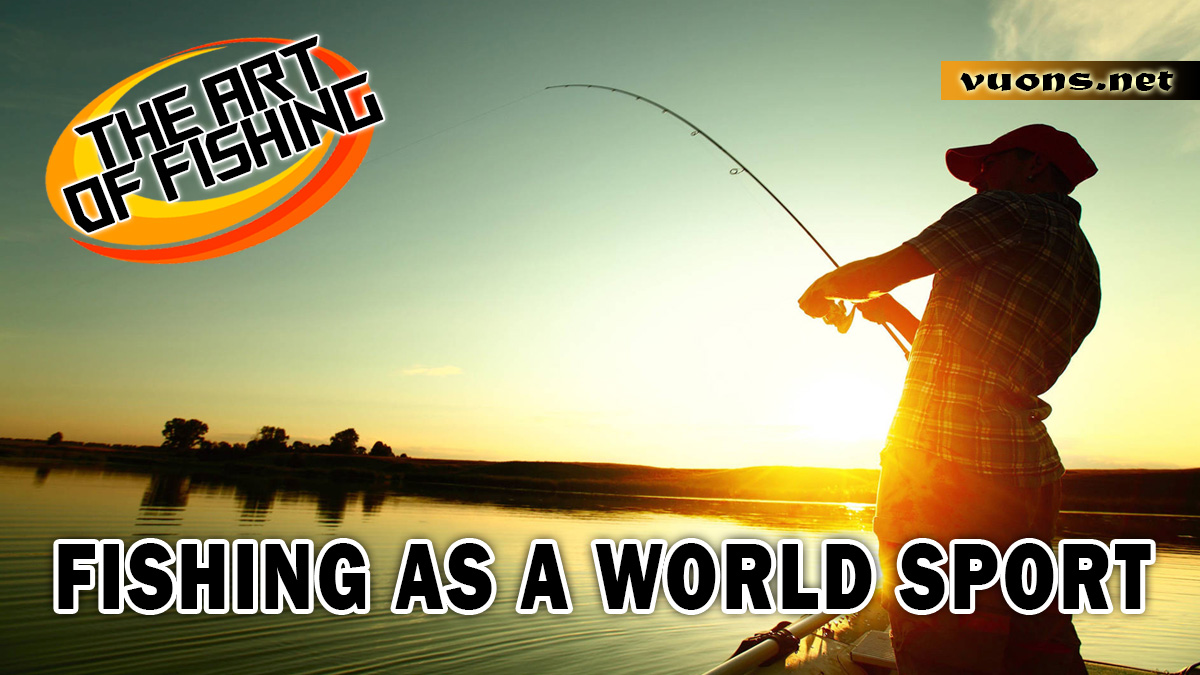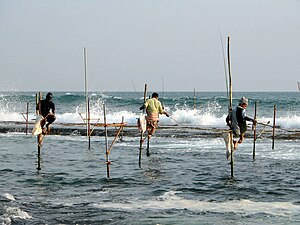Fishing: From Casual Hobby to Competitive Sport
The Evolution of Fishing: From Traditional Recreation to Modern Competition
Fishing has been an integral part of human culture for thousands of years. In the beginning, fishing was a basic activity used to find food and survive. Using simple tools such as spears and hooks made of bone or wood, people fished in rivers, lakes and oceans. At that time, the main goal was to meet the food needs of families and communities.
Over time, fishing evolved into more than just a subsistence activity. In many parts of the world, fishing is starting to be seen as a recreational activity and relaxing hobby. People enjoy time spent in nature, hone their skills, and feel the satisfaction of catching fish. Recreational fishing is often a way to take a break from busy daily life and a means to strengthen relationships with family and friends.
However, in recent decades, fishing has undergone a significant transformation into an internationally recognized competitive Sport. Fishing tournaments are now held in locations around the world, from freshwater to the deep sea, with huge prizes and global recognition for the winners. Competitive fishing demands a high level of skill, in-depth knowledge of fishing techniques, and an understanding of fish behavior and water conditions. Professional anglers use advanced equipment and the latest technology, including sonar and GPS, to increase their chances of catching big fish.
Additionally, modern sport fishing also emphasizes the importance of conservation and sustainable fishing practices. Many fishing tournaments now adopt “catch and release” rules to ensure the continuity of fish populations and maintain ecosystem balance. These changes show how fishing has evolved from just a traditional activity to a more structured and sustainable sport.
Essential Skills Competitive Anglers Must Have
Competitive fishing isn’t just about luck; it is a sport that demands skill and in-depth knowledge. To be a successful tournament angler, there are several important skills to master. Competitive anglers must have a deep understanding of various fishing techniques. Each technique, from casting to trolling, requires a different approach depending on the type of fish targeted and water conditions. These skills include the ability to select the right equipment and use bait effectively.
In addition to technical skills, competitive anglers also need to understand fish ecology and behavior. Knowledge of fish diets, habitats and habits can provide great advantages. For example, knowing when and where certain fish are more active can increase your chances of catching a big fish during a tournament. This also includes the ability to read water conditions, such as current, temperature, and depth, all of which can influence fishing success.
Physical skills are also important in competitive fishing. Handling large, hard-fighting fish requires physical strength and endurance. Anglers often spend long hours in open water, which requires stamina and the ability to endure a variety of weather conditions. The ability to stay focused and calm under pressure is also crucial, especially when time is running out and a big catch is still pending.
Additionally, strategy is key in competitive fishing. Anglers must be able to make quick decisions about when to move locations, change baits, or change technique. This requires quick thinking and the ability to adapt to changing situations. These essential skills are the foundation for every competitive angler to overcome challenges and achieve success on the water, showing that fishing is more than just throwing a line in the water.
Physical and Mental Preparation: The Key to Success in Fishing Competitions
In fishing competitions, success depends not only on fishing skills but also on thorough physical and mental preparation. Competitive anglers must prepare thoroughly for challenges that may arise during a tournament.
Physical preparation is a crucial aspect of fishing competitions. Anglers often spend hours on boats or on the shore, which requires endurance and body strength. Regular physical exercise, such as cardio and strength training, can help increase stamina and endurance. In addition, flexibility and muscle strength are also important to overcome physical challenges when dealing with large, hard-fighting fish.
On the mental side, preparation is equally important. Fishing competitions often take place over long periods of time and under weather conditions that are not always friendly. The ability to stay focused, calm and think clearly under pressure is key to achieving good results. Relaxation techniques and stress management strategies, such as deep breathing and visualization, can help anglers maintain calm and concentration.
Anglers should also prepare for unexpected situations. Developing a flexible and adaptive mentality allows them to quickly adjust strategies if the fish are inactive or if water conditions change. This mental preparation also includes planning for and overcoming possible failures with a positive attitude, so that anglers remain motivated and ready to face challenges.
With a combination of good physical preparation and solid mental strength, competitive anglers can increase their chances of success and victory in tournaments. This readiness ensures that they are not only technically ready but also able to face challenges with confidence and determination.
Fishing Strategies and Tactics Used by Professional Anglers
In the world of professional fishing, the right strategy and tactics can make the difference between victory and defeat. Professional anglers rely on a variety of advanced techniques to improve their chances in tournaments.
One of the main strategies is location selection. Professional anglers often spend time studying water maps and environmental conditions before competitions. They look for spots that are known to be areas of high potential for fish, such as underwater structures, changes in depth, or areas with lots of vegetation. This location is often a gathering place for fish, making it easier for anglers to find and catch them.
Bait and lure tactics are also very important. Professional anglers understand that choosing bait that suits the type of fish and water conditions is key. They use baits specifically designed to attract the type of fish they are targeting and often change baits based on the fish’s response. Using lures of the right color and shape as well as fishing techniques such as jigging or trolling can increase effectiveness.
Proper casting technique is also a key factor. Professional anglers master various casting techniques to reach hard-to-reach locations or to attract fish with precise movements. Accuracy and control in casting allows them to place baits in strategic positions.
In addition, real-time monitoring of water conditions with the help of technology such as sonar and GPS provides additional benefits. This technology helps anglers to map areas more accurately and adjust their strategies based on data obtained during competitions.
By utilizing careful location strategies, effective bait techniques and modern technology, professional anglers can increase their chances of success in tough fishing competitions. These skills reflect the high level of competition in the world of professional fishing.




